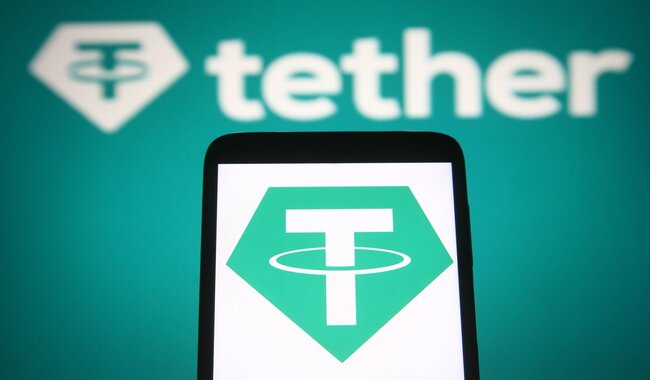Highlights:
- Tether targets a US stablecoin launch by late 2025 or early 2026.
- The company is closely working with US lawmakers and law enforcement.
- The new coin aims to drive crypto adoption in daily US transactions.
The largest stablecoin issuer in the world, Tether, is preparing to launch a US stablecoin for the domestic market. This initiative is a major move for the company, which holds the largest market share of stablecoins globally, according to the CNBC interview. The firm’s CEO said rollout could be completed by the end of 2025 or as early as 2026. However, the timing remains dependent on the development of crypto-related legislation.
💥BREAKING:
TETHER IS PLANNING TO LAUNCH A U.S.-BASED STABLECOIN, WITH THE ROLLOUT EXPECTED AS EARLY AS THIS YEAR pic.twitter.com/B7ZAxfiqyv
— Crypto Rover (@rovercrc) May 2, 2025
Tether’s venture comes amidst the growing political endorsement of digital assets from President Trump’s presidency. The GOP-led GENIUS Act, which prefers stablecoin firms cooperating with law enforcement, ranks among the legislative push. In particular, Tether’s operations are already consistent with such cooperation strategies.
In addition, Tether’s legal cooperation has become the center of its U.S. lobby narrative. The firm has also met directly with lawmakers and taken part in private Capitol Hill events. These interactions are happening as U.S. regulators consider revising crypto policy frameworks.
Regulatory Strategy and Reserve Transparency
The firm’s corporate leadership is moving to become part of the developing regulatory environment. The goal of the new US stablecoin is to cater rising demand for consumer blockchain payments. The U.S. only version, however, would serve the domestic users different from the internationally used USDT.
The company advocates for transparency and audit readiness to meet the U.S. laws. Recently, it released an audit which verified that it had about $120 billion in U.S. Treasuries in its holdings. Cantor Fitzgerald, which has close ties with high-profile U.S. political figures manages these assets.
The firm has also confirmed it had excess reserves of $5.6 billion at the end of quarter one of 2025. While this figure is lower than the previous $7 billion at year-end, Tether ranks ahead of most other crypto issuers in terms of reserve strength. Furthermore, the firm claims that it has more than $7 billion in excess company equity.
Tether officials have also said that its compliance tools exceed those used by traditional financial institutions. This claim is part of its larger effort to convince U.S. regulators that it is ready to come under tighter oversight. Therefore, the firm continues to integrate law enforcement collaboration into its core strategy.
Political Landscape and Industry Competition
The engagements by Ardoino with Washington elites are part of Tether’s bid to gain a long-term foothold in the U.S. market. He has also visited senators for lunch and attends closed-door briefings on crypto legislation. Such efforts have positioned Tether on the front lines to capitalize on regulatory clarity.
Meanwhile, other high profile players are taking an interest in the U.S. stablecoin space. Eric and Donald Trump Jr. are launching their own stablecoin under World Liberty Financial. This development could result into competition in the politically backed stablecoin and the already dominant in global markets.
Due to favorable policies, Tether, which has its headquarters in El Salvador, now sees the U.S. as a strategic market. Congress is doubling down on scrutiny of stablecoin issuers as the push towards domestic products intensifies. While Tether took regulatory penalties in 2021, it is now focused on compliance and integration with the US.
Best Crypto Exchange
- Over 90 top cryptos to trade
- Regulated by top-tier entities
- User-friendly trading app
- 30+ million users
eToro is a multi-asset investment platform. The value of your investments may go up or down. Your capital is at risk. Don’t invest unless you’re prepared to lose all the money you invest. This is a high-risk investment, and you should not expect to be protected if something goes wrong.






